Entrepreneurs in every field face the same dilemma in today’s fast-paced, ever-changing marketplace: how to establish an enduring, relevant brand that stands out from the crowd. When you have a well-known brand, it sets your company for success by being synonymous with the product or service you provide: Have you ever requested a Kleenex when you needed a tissue?
Without a strong brand, your firm may be doomed to mediocrity. So, how can you create a brand that has a long shelf life? What you should do is as follows:
- Tell Your Story
Brand storytelling is a brand marketing method used to promote brand recognition. Brand storytelling, as the name indicates, is the process of telling a narrative using multiple mediums (e.g., videos, posts, social media, and so on) in order to catch the attention of your intended audience. By establishing an emotional connection with your audience, brand storytelling may help to build and expand your audience. Today’s audience is motivated by the personal relationships they have with businesses. Engaging in brand storytelling may help you reach a larger audience. The capacity to skillfully arouse emotions in your audience in order to develop a relationship is the importance of brand storytelling. Implementing a great brand storytelling approach will assist your audience in learning more about your brand, hence assisting you in growing your audience.
- Focus on the Social Good
Companies are expanding their emphasis on social responsibility, whether it is advocating women’s rights, safeguarding the environment, or working to eradicate poverty on a local, national, or global scale. From an aesthetics standpoint, socially responsible organisations portray more appealing images to both consumers and shareholders, which benefits their bottom lines.
When building products or services that aim to promote change, putting social or environmental impact at the centre of a brand is frequently an instinctive choice. However, it is not a foolproof technique. Before developing a brand, businesses must evaluate their consumers, market, and positioning. If the objective is to make a significant difference, firms may be able to accomplish it sooner if they play it down. Pursuing social good will help you position yourself as a values-driven brand, and you’ll feel good doing it.
- Balance Timeless and Trendy
Trends enable organisations to push the market’s boundaries while introducing new ideas and possibilities. Furthermore, trends enable companies to convey their beliefs in a variety of ways.
Despite this, many firms regard trends as ‘this too shall pass.’ While this may be true, it does not imply that it is not worthwhile to capitalise on the momentum generated by relevant trends in order to increase brand visibility and trust. You also get to maintain a strong and relevant brand presence in the eyes of your target audience while you’re at it.
All trends signal changes and developments in the marketplace. So, let’s look at why trends are crucial for a brand and learn from other companies that have incorporated trends into their branding efforts.
- Create Communities
People want to be a part of something bigger than themselves right now. This indicates that community is vital to corporate success. However, building a community involves far more than merely assembling individuals in the same location or amassing a particular number of users on an app or website.
Successful businesses, particularly digital firms, use the power of community to raise brand recognition, better understand consumers, enhance outcomes, and generate brand loyalty.
Communities, whether through in-person events or online forums, are critical to brand loyalty, recognition, and overall success. A vibrant and active community will result in better goods, learning and innovation, and corporate success. However, in order to have an effect, businesses must create communities that go beyond simply selling a product and instead give value and support to members.
- Be a Trailblazer
If you truly want to create an impactful brand, attempt to influence the culture and modify the perception of what it means to be a leading brand. Even five years ago, most people would have described huge corporations like Ford and IBM as iconic brands. Today, smaller, more agile, and impact-focused businesses like Toms and Patagonia are becoming well-known and well-established because of their dedication to social effect, rather than in spite of it. Brands that care about making a difference are changing the culture of what it takes to be an enduring brand. and yours has the potential to pave the way.










